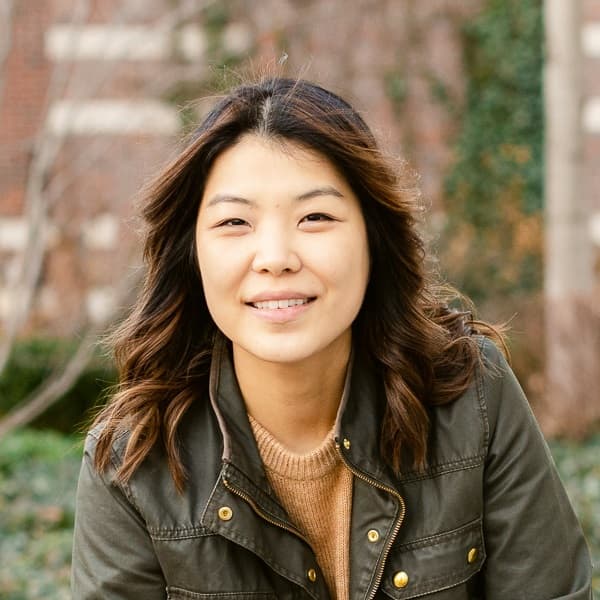Advertisement
Fight for Chinatown park snagged by asbestos concerns
Play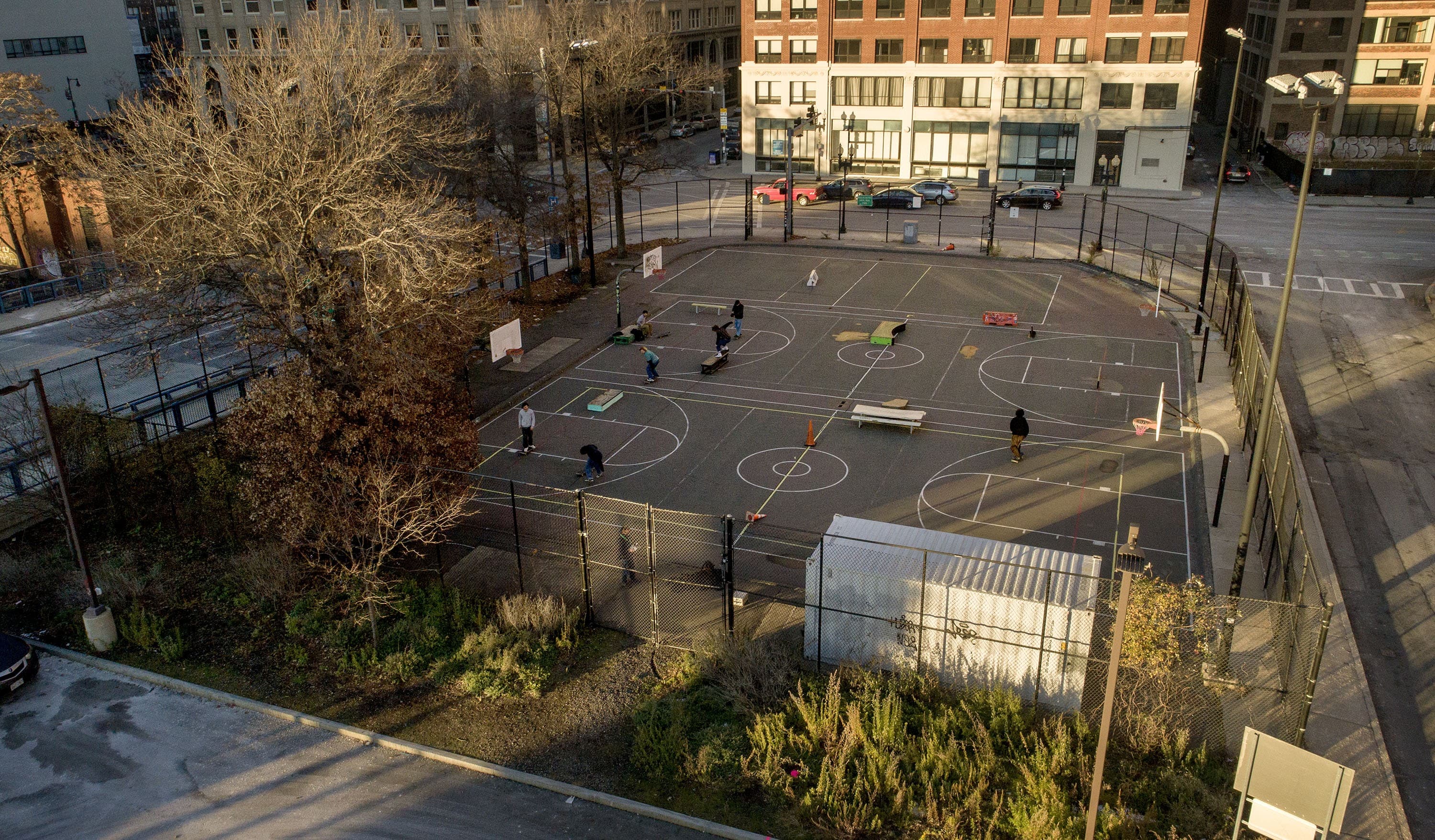
Environmental hazards in Chinatown’s only recreational park are at the center of a yearslong battle for open space in the neighborhood.
Reggie Wong Memorial Park is a paved lot near South Station that community groups have been trying to lease from the state for years. Neighborhood advocates say they need the lease to ensure the park stays in the community and to make long-awaited improvements.
“We just want to lease the land, make it better, and make it playable for the neighborhoods,” says Russell Eng, president of the nonprofit Friends of Reggie Wong Park, which includes representatives from the Chinatown Community Land Trust, and the Chinatown and Leather districts.
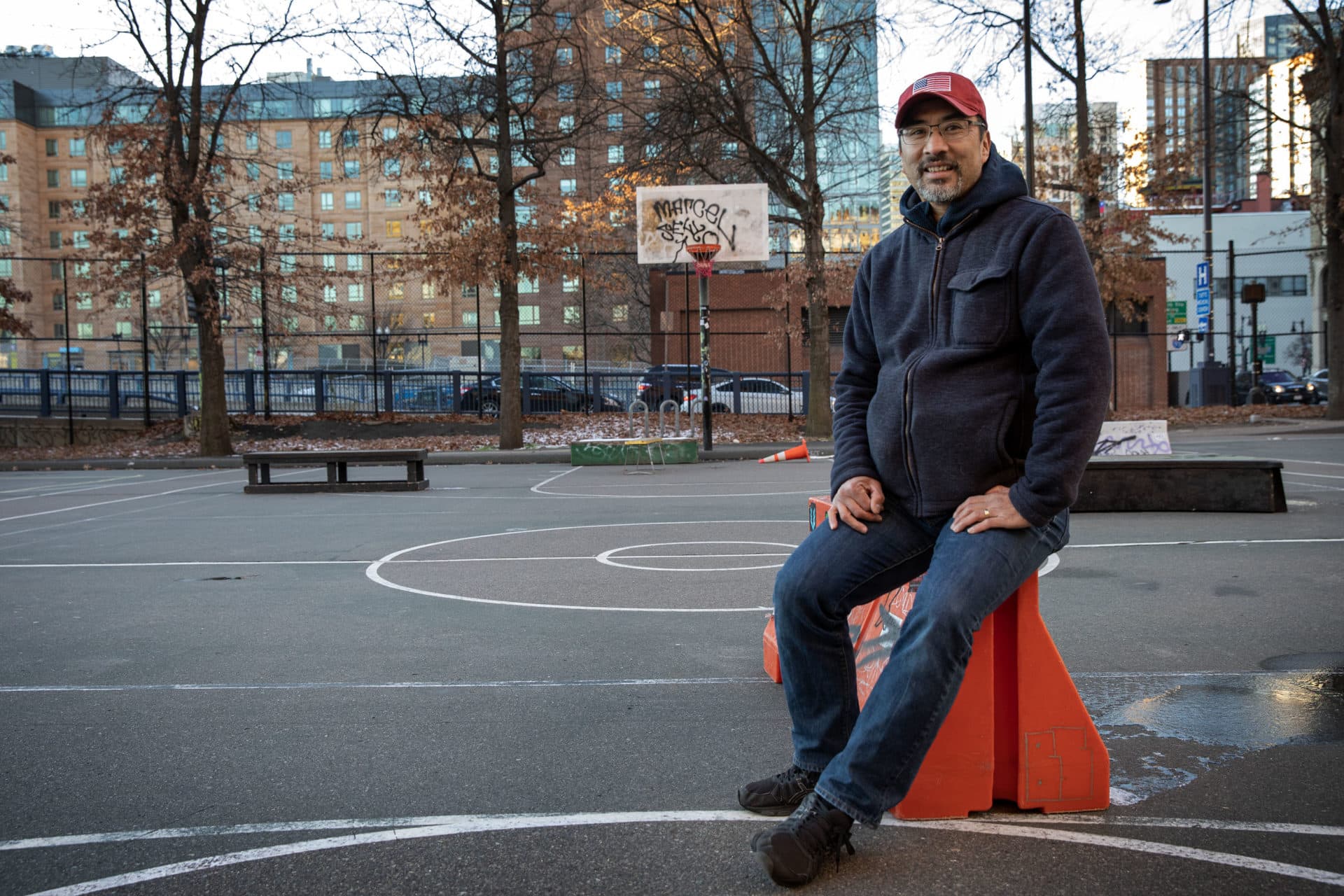
The park, about a third of an acre in size, is made up of a few basketball hoops and a court for playing volleyball at the corner of Lincoln and Kneeland Streets, beside an old steam plant, a state-owned parking lot and ramps to I-93. Despite its small footprint, the park is a celebrated hub for the Asian American community’s 9-man volleyball tradition and remains one of the only places to play or exercise outdoors in Chinatown.
Over the past six years, the neighborhood has tried to have more say in the park’s future and began negotiating with the state for a lease, but community members say discussions stalled last April. That’s when the Department of Transportation, which owns the park, notified them of asbestos contamination on the land.
Since then, the two parties have not been able to agree on the extent of the state’s responsibility to clean up the park.
A 'sacred space' for Chinatown
In October, community activists gathered at the park with local elected officials and residents to demand that DOT sign a lease.
Norman Eng (no relation to Russell Eng), director of the Boston Chinese Freemasons 9-man volleyball program, was at the event and called the lease a matter of spatial justice.
“For those of you that know about the history of Chinatown and know about the highway, and everything that we've gone through in our community, know that this piece of land is ours,” he said, speaking out into the crowd.
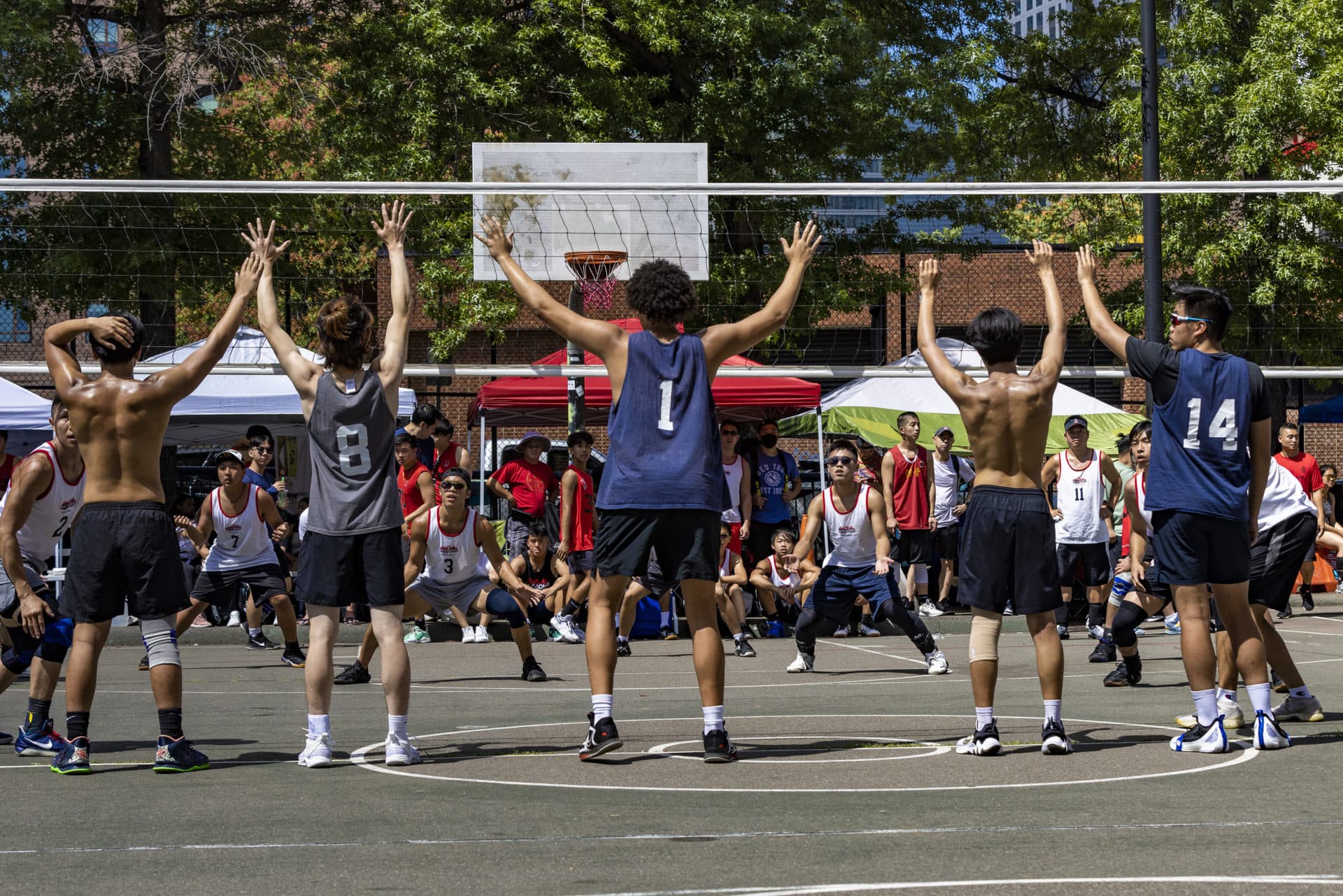
He has played volleyball in Chinatown for 30 years and says he can smell the highway exhaust from the courts — where a 2017 Tufts University study found elevated levels of ultra fine air pollutants . But Norman Eng considers the park his second home.
“It's all that we have left,” he said. “It's our one sacred space.”
Norman Eng says the fight for a lease is just part of the long struggle over land in Chinatown, going back to the 1950s and 60s, when the state displaced thousands of residents from their homes to make way for major infrastructure projects like the Central Artery.
“That's the thing about being in Chinatown. You don't get to negotiate with the government. They negotiate for you.”
Russell Eng
The park and surrounding area are one of the last remaining sites to be cleaned up after the Big Dig, and in 2016, the area was put up for development . That’s when the community started organizing for formal control of the park.
“It's just kind of disappointing to see the park still not secured for long term,” says Norman Eng.
Negotiation and remediation
Six years ago, Chinatown groups say they began sharing numerous plans with DOT for proposed improvements to the park, such as repairing holes in the pavement and installing a children's play area. Preparations for the lease included securing $100,000 from the city of Boston’s Community Preservation Act funds for future renovations.
The community came close to signing in 2019, according to Russell Eng, when then-Transportation Secretary Stephanie Pollack made a verbal commitment to lease the park to the community for $1 a year for 15 years.
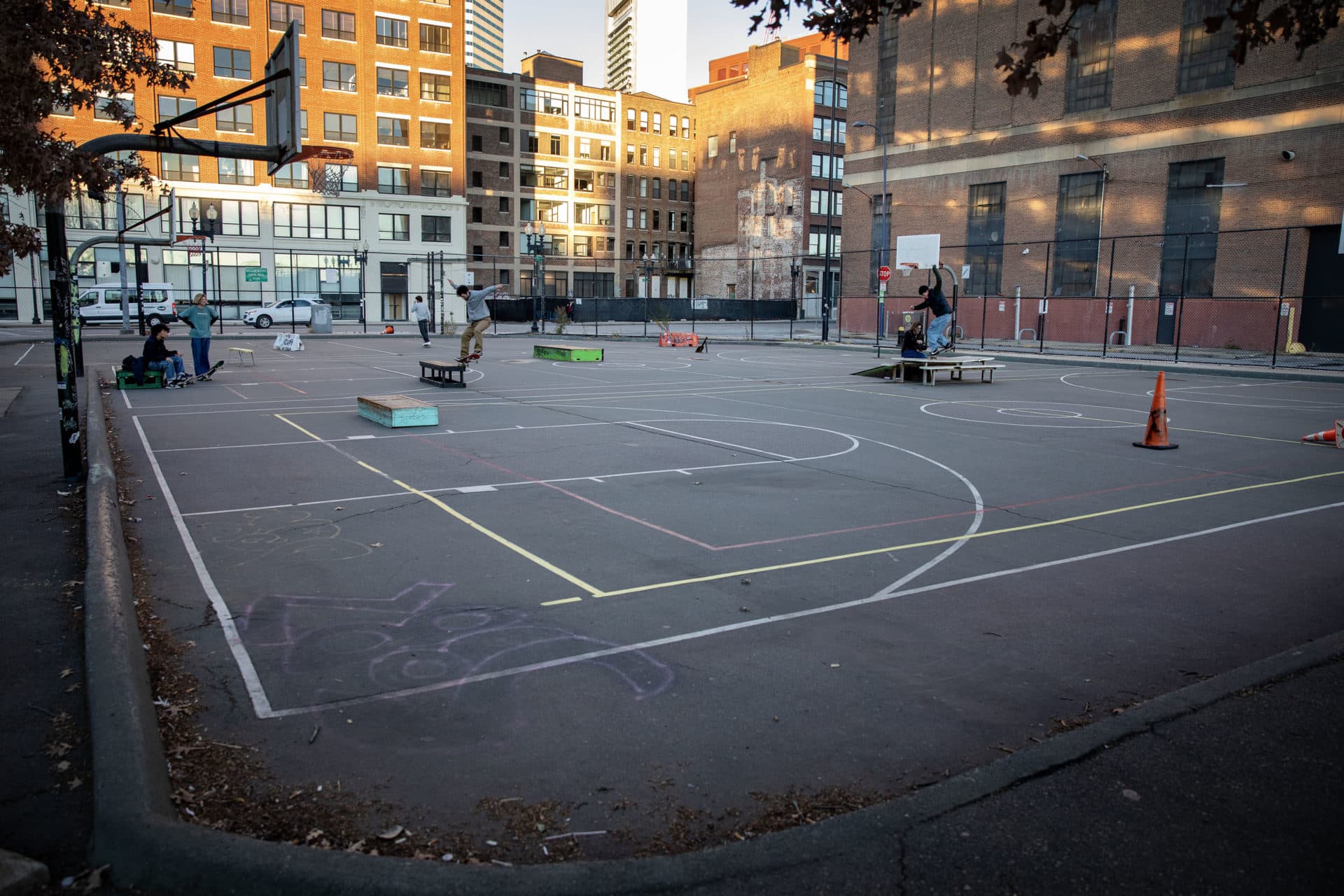
But when DOT notified Friends of Reggie Wong Park of the asbestos, he says the terms of the lease also changed.
“Three years later, they say there's asbestos there and we're responsible [for remediation],” said Russell Eng.
He says DOT has agreed to remediate the currently exposed areas of the park, which would include soil removal and capping other potentially contaminated soil with pavement. But the parties have not agreed to the terms of future remediation, since efforts by the community to renovate the park would disturb the surface and likely require more clean up.
Representatives from DOT declined to be interviewed, but said in an email that it’s ready, with the state’s Department of Environmental Protection, to clean up the asbestos, and confirmed the agency is in discussions with the community to consider its requests.

Kathryn Friedman, a board member of Friends of Reggie Wong Park, says the nonprofit has also secured at least $250,000 in federal recovery funds from the American Rescue Plan Act to improve the park.
“We actually are in jeopardy of losing some of this money if we don't get the lease signed soon,” she said.
The nonprofit says the funds must be committed — with a signed lease — by 2024, and spent by 2026.
Competing priorities
Ezra Haber Glenn, lecturer of Urban Studies and Planning at MIT, says it’s not unusual for negotiations with the state to take years, but it’s especially complicated when bureaucracies overlap, like when a city park is owned by a state agency.
“The state has certain rules about how it can do things and certain responsibilities,” says Glenn. “And DOT was not created to provide parks for the city of Boston. It was created to manage our transportation statewide.”
Glenn is not involved in the negotiations, but says state agencies must often balance competing responsibilities. On one hand, a park meets a critical need in the community for open space. On the other, surplus land can generate income to fund other public projects.
City Council President Ed Flynn, who represents Chinatown, says community access to the park should be preserved.
“Just because something is prime real estate does not mean that it should be given over to developers,” said Flynn.
Flynn has joined the community in their negotiations for a lease since he was elected to the district in 2017 and supports a long-term solution for the community.
“What we don't want to see is after the lease is up, the park be developed into luxury condos for the wealthy,” said Flynn. “This community deserves better.”
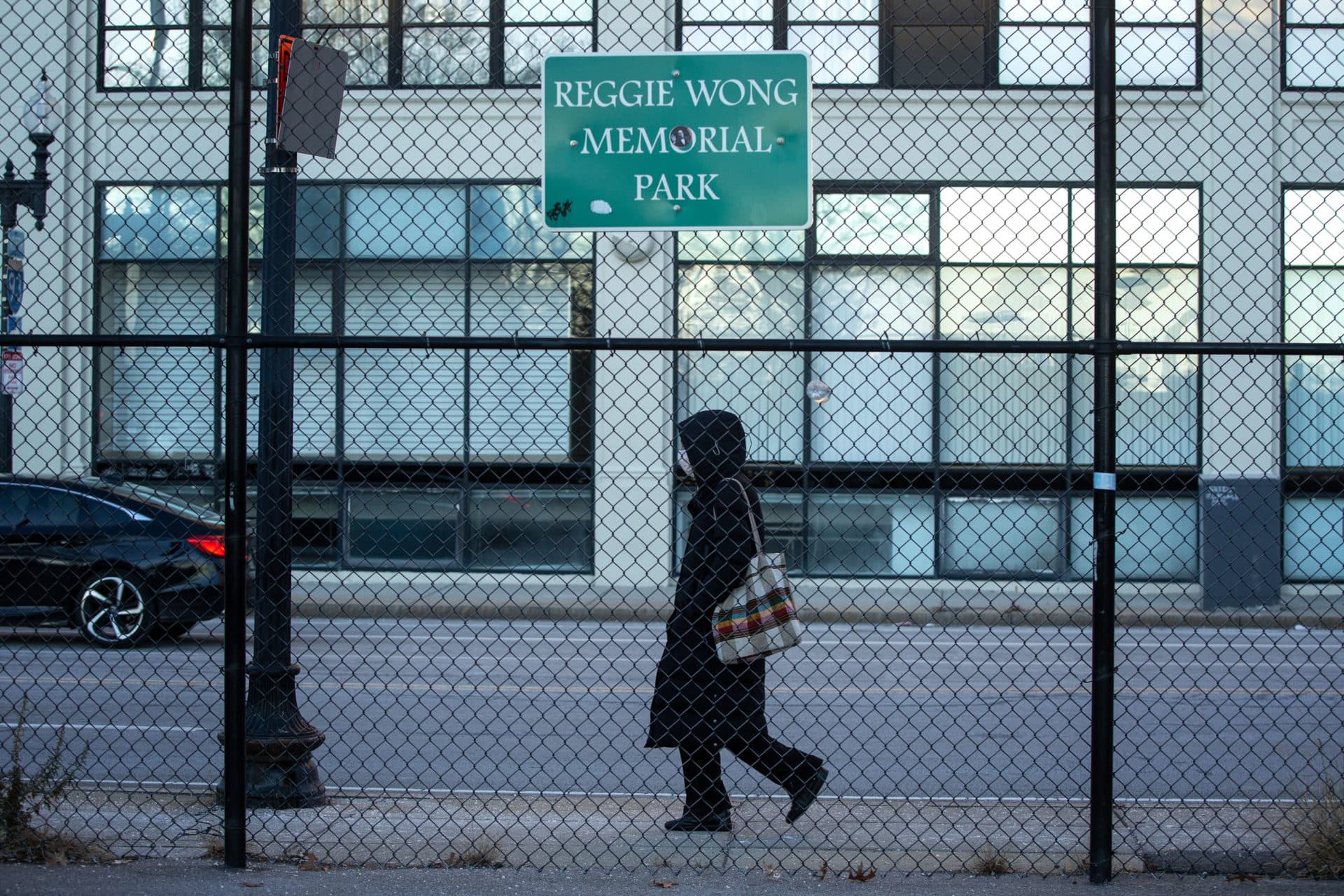
Unlike many public parks that are protected by the state’s constitution , Reggie Wong Park is not safe from future development. However, some conservation experts told WBUR that in 2017, the state’s Supreme Judicial Court expanded protections to include municipal parks that have been clearly dedicated and used as a public space — and Reggie Wong Park may qualify, given its prior use as a park for decades.
But Russell Eng says the current lease terms specifically state that DOT will not recognize Reggie Wong Park as protected land.
“That's the thing about being in Chinatown,” he said. “You don't get to negotiate with the government. They negotiate for you.”
Representatives from the city's Parks and Environment departments, as well as the Boston Planning & Development Agency, all declined requests to discuss the subject. Mariama White-Hammond, Boston's Chief of Environment, Energy and Open Space, said in an email that the city “appreciates the community’s advocacy to expand park space.”
Russell Eng says that other than Flynn, representatives from the city stopped attending meetings over a year ago.
Looking ahead
The nonprofit meets with DOT on Tuesday to discuss soil remediation at the park. But Russell Eng is already looking ahead to the new year. With a new administration starting in January, he may have new points of contact in the state.
Even if the negotiations fail to secure long-term remediation, Russell Eng says the community will continue to use the park as it has for 50 years.
“We'd rather play and continue our community presence and community traditions there,” he said. “And we'll deal with the health factors and stuff like that afterwards.”
Despite recent freezing temperatures and ongoing negotiations about the contamination, local volleyball teams and skateboarders continue to meet at the park regularly.
Russell Eng says the park’s value to different communities around Boston is a reflection of its namesake, Reggie Wong.
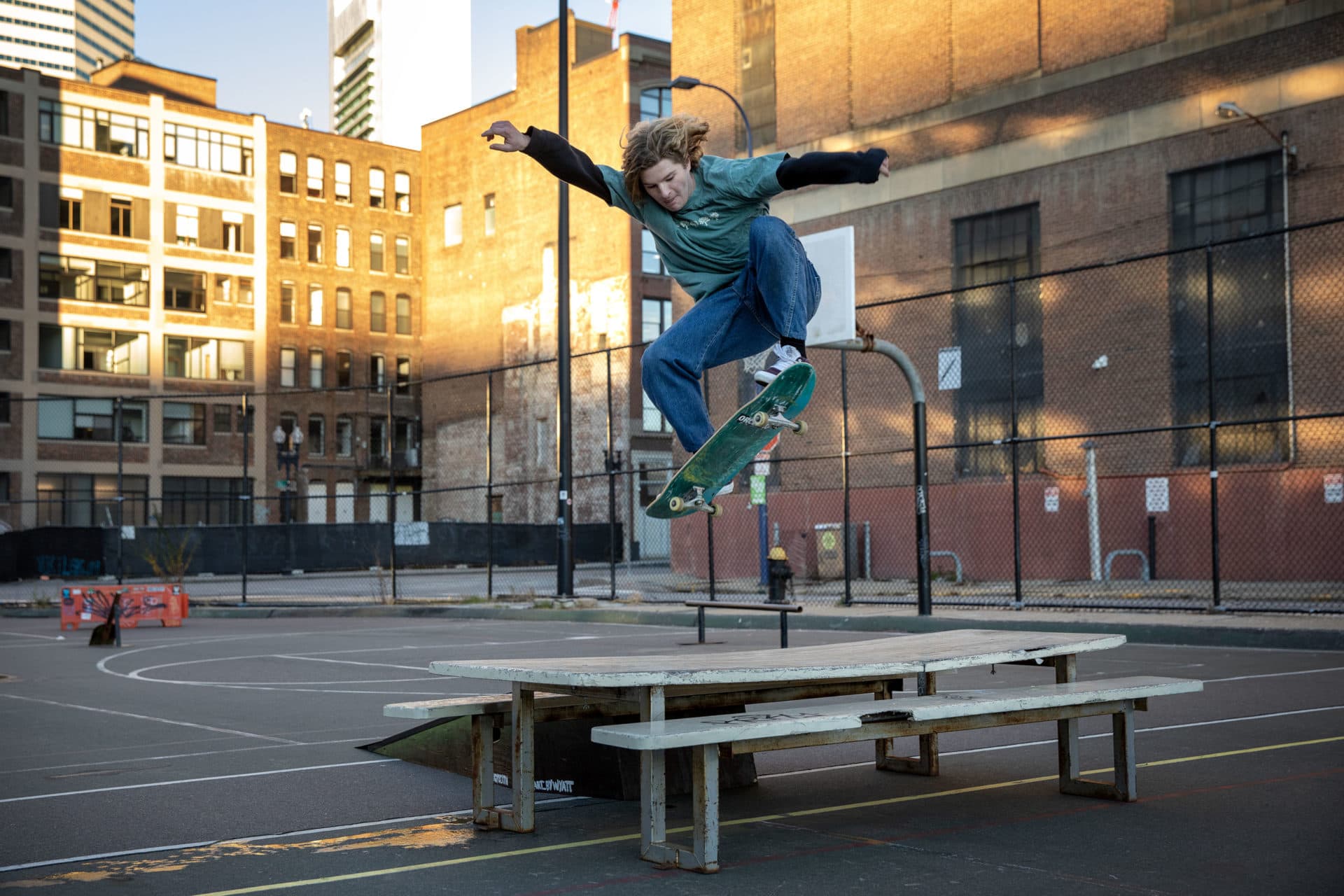
Wong was known to foster strong relationships in and outside of Chinatown circles and was a vocal supporter of neighborhood’s business community. A dedicated sports fan, Wong advocated for the use of the park, then called Pagoda Park, by everyone.
Russell Eng, who is also Wong's nephew, said he was “always open, friendly, welcoming.” Evidence of his influence came 10 years ago, when a thousand people petitioned to rename the park after Wong passed away in 2011.
There have been discussions of memorializing Wong with a statue or a plaque at the park, according to Russell Eng, but along with the community’s many other desired improvements for the space — everything is on hold until a lease is signed.
This segment aired on December 19, 2022.
